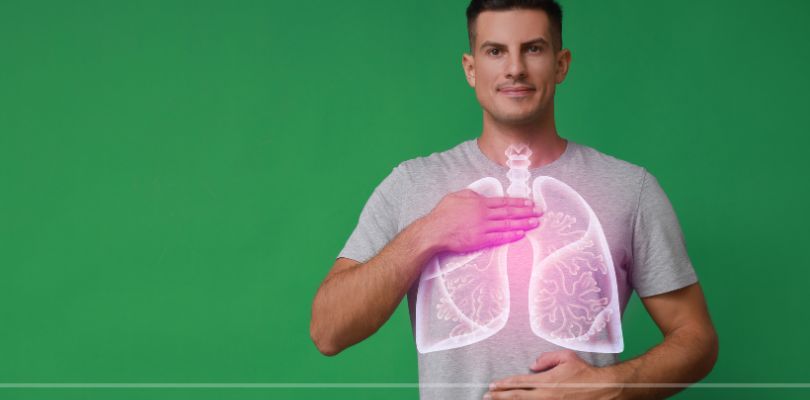Lung Cancer’s Diet Don’ts
8 Worst Foods for Lung Cancer
1. Processed Meats
Processed meats, such as bacon, sausages and deli meats, contain nitrates and other preservatives that can contribute to inflammation and increase cancer risk. These foods can also be high in sodium and unhealthy fats, which can negatively impact overall health.
2. Sugary Foods
Foods high in sugar, like candy, pastries and sugary drinks, can lead to weight gain and inflammation. Maintaining a healthy weight is important for managing lung cancer and minimizing treatment side effects.
3. Fried Foods
Fried foods, such as French fries and fried chicken, are often high in unhealthy fats and calories. These can contribute to weight gain and inflammation, making it harder for the body to recover from treatment.
This article will look at the worst drinks for sickle cell disease, exploring some of the biggest culprits. Read on to learn more.
4. Red Meat
Red meats, including beef and lamb, have been linked to increased cancer risk when consumed in large amounts. They can also be difficult to digest and may cause gastrointestinal discomfort.
5. Alcohol
Excessive alcohol consumption can weaken the immune system, interfere with cancer treatments and contribute to dehydration. It’s best to limit or avoid alcohol to support overall health and treatment efficacy.
6. Caffeinated Beverages
High-caffeine drinks, such as energy drinks and large amounts of coffee, can lead to dehydration and may cause discomfort for individuals undergoing cancer treatments. Opting for non-caffeinated alternatives can be more beneficial.
7. Acidic Foods
Foods and drinks high in acidity, such as citrus fruits and certain sauces, can cause irritation to the digestive tract, especially if undergoing treatment that affects the throat or stomach.
8. Highly Processed Foods
Highly processed foods, like ready-to-eat meals and snack foods, often contain unhealthy additives and low nutritional value. These can negatively affect overall health and energy levels.
8 Best Foods for Lung Cancer
1. Fruits and Vegetables
Fresh fruits and vegetables are packed with vitamins, minerals and antioxidants that help fight inflammation and support the immune system. Aim for a colorful variety, including leafy greens, berries and cruciferous vegetables like broccoli and Brussels sprouts.
2. Whole Grains
Whole grains, such as brown rice, quinoa and whole-wheat bread, provide essential nutrients and fiber. They help maintain energy levels and support digestive health.
3. Lean Proteins
Lean proteins, including chicken, fish, tofu and legumes, are crucial for maintaining muscle mass and overall strength. They also aid in tissue repair and recovery.
4. Healthy Fats
Incorporate sources of healthy fats, like avocados, nuts, seeds and olive oil. These fats provide essential nutrients and can help manage inflammation.
5. Hydrating Foods
Foods with high water content, such as cucumbers, watermelon and soups, help maintain hydration, which is important for overall health and managing treatment side effects.
6. Herbal Teas
Herbal teas, such as ginger and chamomile, can soothe the digestive system and provide comfort during treatment. They are also generally free from caffeine and artificial additives.
7. Low-Fat Dairy or Alternatives
Low-fat dairy products or fortified non-dairy alternatives, like almond or soy milk, provide essential nutrients like calcium and vitamin D, which are important for bone health.
8. Bone Broth
Bone broth is rich in minerals and can be soothing for the digestive tract. It’s also an excellent source of hydration and can support overall health.
Treatments for Lung Cancer
Treatment for lung cancer typically depends on the stage and type of cancer and may include:
Surgery
Surgical options aim to remove the tumor or affected part of the lung. This is often considered for early-stage lung cancer.
Chemotherapy
Chemotherapy uses drugs to kill cancer cells throughout the body. It is often used for more advanced stages or in combination with other treatments.
Radiation Therapy
Radiation therapy involves using high-energy rays to target and destroy cancer cells. It is used to treat localized cancer or to shrink tumors before surgery.
Targeted Therapy
Targeted therapy focuses on specific molecules involved in cancer cell growth. It is used for cancers with particular genetic mutations or alterations.
Immunotherapy
Immunotherapy helps the immune system recognize and attack cancer cells more effectively. It is often used for advanced lung cancer and may be combined with other treatments.
Palliative Care
Palliative care focuses on improving the quality of life by managing symptoms and providing support throughout the treatment process.
Dangerous Dishes
Choosing the right foods and avoiding harmful ones can significantly impact your health and well-being while managing lung cancer. A balanced diet that supports hydration, reduces inflammation and provides essential nutrients can help improve comfort and support treatment effectiveness. Always consult with your healthcare provider to tailor dietary choices and treatments to your individual needs.
Read on to learn about the worst drinks for lung cancer.







